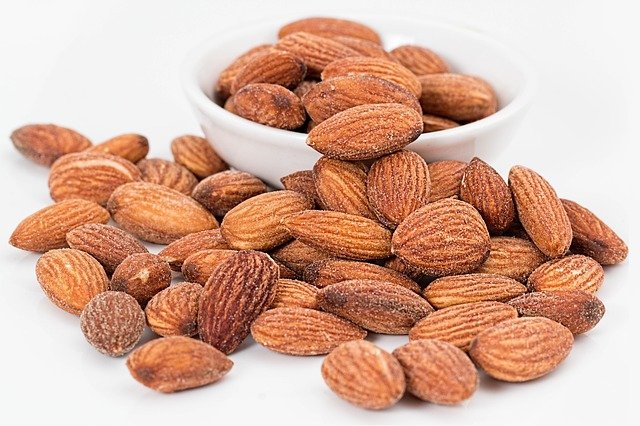
The almond has an unmistakable appearance
The Greek word amygdálē came into Latin as amygdăla , in turn derived into the Vulgar Latin amyndŭla . That is the closest etymological antecedent of almond , a term that refers to the fruit produced by the almond tree .
almond fruit
Before moving forward, it is important to note that the almond tree is a tree that can reach a height of about eight meters. It belongs to the Rosaceae family group and its wood stands out for its hardness.
The almond is the fruit of this tree. It is a drupe : a fruit that has a single seed , a woody endocarp and a fleshy mesocarp .
Oblong in shape, the almond has a hard shell that cannot be ingested. The edible part is the seed , which is covered by a light brown film .
Health benefits
Almonds provide fiber , protein , potassium , phosphorus , calcium , iron , magnesium , vitamin B1 , vitamin B2 and folic acid , among other minerals and nutrients. Professionals indicate that 20 almonds a day are enough to provide 100 calories.
As long as we respect the recommended amount, almonds can offer different health benefits. Broadly speaking, we can mention that it helps reduce the risk of cardiovascular diseases and contributes to the strengthening of bones , teeth, skin and hair. One of the specific cases in which this fruit is especially beneficial is pregnancy: already from pregnancy, its minerals and proteins provide a powerful nutritional combination for the baby and the mother, in addition to stimulating the production of breast milk.
Athletes can also find benefits in almonds, because it is a fruit that tones and rebuilds muscles. It is especially recommended for children and adolescents , even if they do not play sports. The brain can also perform better thanks to the phosphorus and unsaturated fatty acids in almonds, with greater emotional stability and an increase in the effectiveness of learning and the use of memory.
We must also highlight the reinforcement of the immune system that consuming almonds gives us, something that occurs thanks to its content of antioxidants, such as zinc, manganese, quercetin and vitamin E. On the other hand, it is a fundamental food to take care of heart health. Its richness in monounsaturated fatty acids helps reduce bad cholesterol, increase good cholesterol and reduce the risk of cardiovascular accidents.
Recommendations
Although sweet almonds do not have any contraindications, bitter almonds are toxic, given their amygdalin content, and for this reason they should be consumed with caution. The body transforms amygdalin into hydrocyanic acid when it reaches the stomach, and this substance is not easily assimilated by children.
Broadly speaking, and without taking into account the person's weight, it is known that consuming between 5 and 10 almonds can cause poisoning in a child, with potentially fatal consequences; The same can be said for an intake of between 50 and 60 in an adult. Heating bitter almonds considerably reduces its negative effects.
As an ingredient
The United States is the main producer of almonds worldwide . Behind them appear Spain , Iran , Morocco and Turkey .

There are many products made from almonds.
It is common for almonds to be used to make sweets and desserts . Marzipan , for example, is a paste that is produced with ground almonds and sugar. Many nougats are also made with almonds.
The so-called almond milk , meanwhile, is made with almond paste or ground almonds mixed with water . This milk is a whitish juice that has nothing to do with the substance secreted by mammals.
